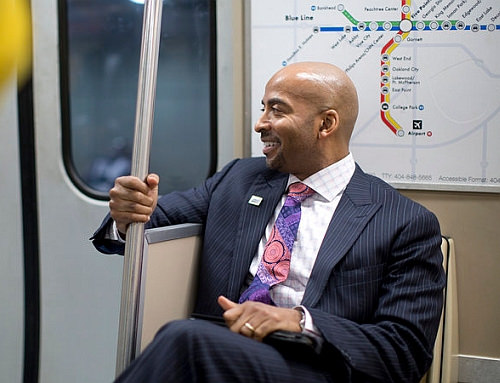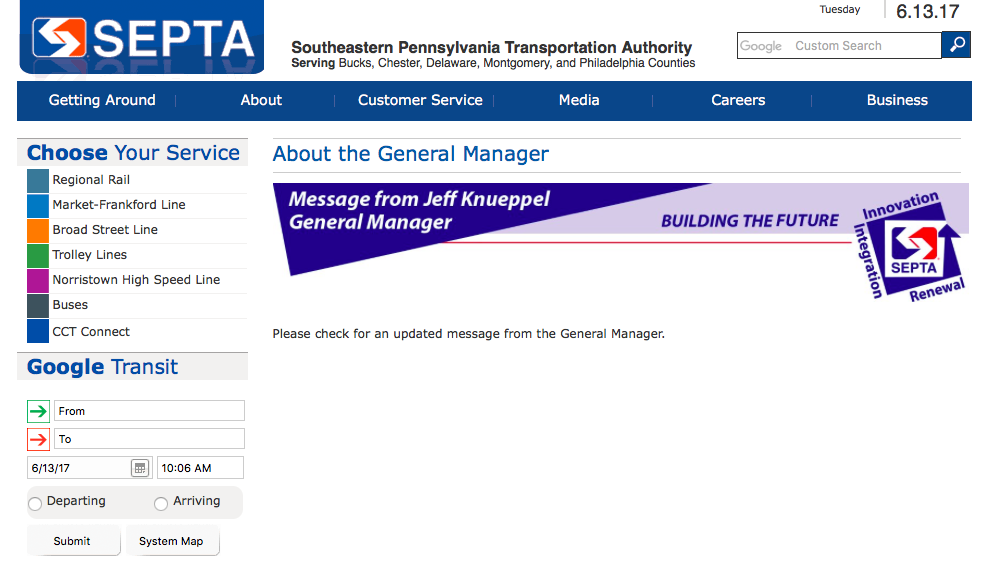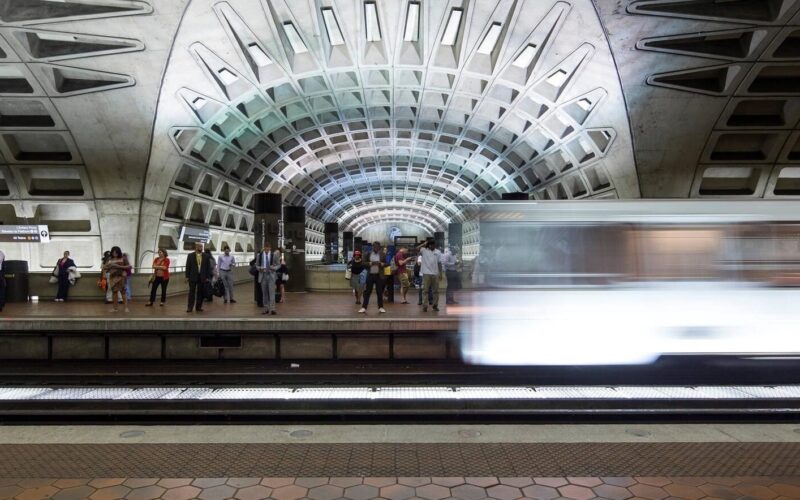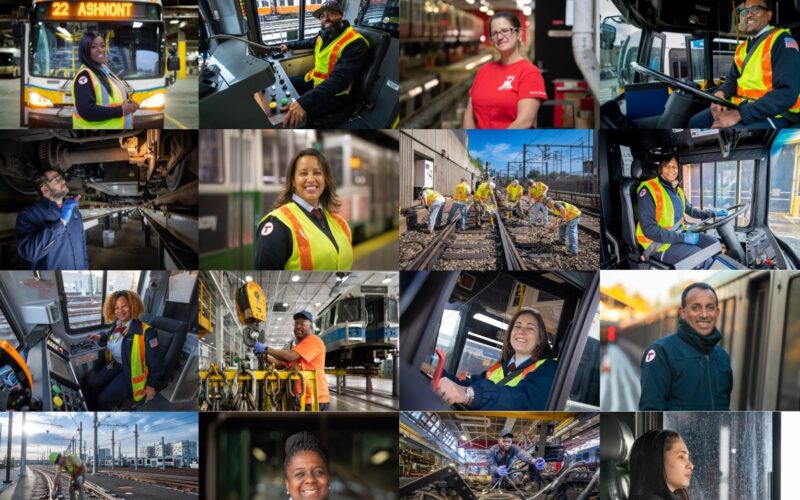
Transit’s potential benefits, such as physical and social mobility and sustainability, enjoy broad support in urban America. But the U.S. transit industry has trouble talking about what it does effectively and proactively. How can transit agency leaders attain a stronger leading role in framing public conversations about urban transportation rather than letting others drive the conversation?
Consider how one of New York’s major transit issues entered the public domain early last year: news leaked that the heavily-used L subway line would need to be shut for protracted repairs owing to damage caused during Hurricane Sandy. If the Metropolitan Transportation Authority and Governor Cuomo’s office had been ahead of the story, it could have been a moment of strong, grown-up leadership explaining the difficult situation and framing the need for shared sacrifice. Instead, the MTA remained flat-footed for weeks, sending staff to emergency neighborhood and merchant community events who were not allowed to discuss the issue or the MTA’s likely response. Sky-high cynicism about the MTA’s good will and competence was reinforced.
Earlier this year, Boston’s MBTA made front page news with a proposal to achieve modest budget savings by ending commuter rail service on weekends. Not only had legislative leaders not been briefed, the idea appears not to have been vetted by the Massachusetts Governor’s office — the agency’s ultimate boss — or even MBTA’s CEO. Result: an embarrassing and unnecessary climb-down from a bad idea that would never pass muster among the state’s political leadership.

At more macro levels, transit agencies building out new rail systems have tended to obscure what transit is good at doing and where it is less effective. This is partly a problem of political leadership setting an agenda that goes unchallenged by transit professionals. One result is new networks to serve some suburban commuters but anemic systems in urban cores, as in Denver. With a similar approach over many years, Los Angeles has managed to engender an abiding “spending billions while ridership plunges” narrative.
Some of the reasons for the gulf between transit’s strategic communication needs and current capacity was on display at an American Public Transportation Association communications and marketing conference in Tampa earlier this year.
The proceedings were marked by several clear themes. First, many transit agencies are purely reactive in their views of communications. Second, where communication staff are present, they are rarely part of agency leadership, and thus do not contribute to what, how and in what order transit agencies do what they do. And an agency that has no clear goals beyond getting buses or trains out of depots each morning will tend to neglect communications. Instead of discussing ways to make cases to officials and the public in their jurisdictions for more frequent service, system expansion, funding for maintenance and being clear about the causes of obvious problems, many of the agencies present seemed to be under pressure in flavor-of-the-month manner to say they are “innovating” by forming partnerships with transportation network companies like Uber. A better use of participants’ time might have been development of communications strategies and tools to convey why cities do and will need great transit in spite of the advent of e-hail services.
As a counterpoint, it’s worth looking at some of the regions where discussion of transit policy appears to be better-grounded.
MARTA CEO Keith Parker is widely credited with transforming the public discussion of transit in Atlanta since taking the agency’s helm in 2012. Much of that is a result of extremely strong management that has reduced costs and improved service. But it is also due to quiet conversations with influential politicians and civic actors, and a lot of public discussion of the 2016 MARTA ballot measure. He has been able to articulate a long term vision linked to increasingly popular expansion projects to community-friendly initiatives like station-area greenmarkets. Parker has added a vice president of communications to his small leadership group, and recently appeared at recent city council meeting to take responsibility for problems after a smoke incident on a train.

In a different vein, the @SFBART twitter feed turned a corner in early 2016 during a service meltdown. The social media team began explaining the over-capacity passenger volumes, aging infrastructure and limited maintenance windows instead of offering the standard reassurances about restoring service. The March 16, 2016 episode ignited a public conversation about the state of BART that was a strong contributor to voters’ passage of $3.5 billion for system upgrades during last November.
How the transit industry positions itself within distinct markets and nationally is a huge topic that TransitCenter will continue to cover. Does reliance on ballot measures for funding force some agencies to up their games? Is there a similar effect for major initiatives like redesigning a bus system? Why are transit CEO’s as public figures so rare? Is there any linkage between the quality of a transit system’s communication with its riders and how well it describes and advances its policies and project initiatives? If you have good or bad transit communication stories you think are worth highlighting, please let us know about them.
 On the Brink: Will WMATA’s Progress Be Erased by 2024?
On the Brink: Will WMATA’s Progress Be Erased by 2024?
The experience of being a WMATA rider has substantially improved over the last 18 months, thanks to changes the agency has made like adding off-peak service and simplifying fares. Things are about to get even better with the launch of all-door boarding later this fall, overnight bus service on some lines starting in December, and an ambitious plan to redesign the Metrobus network. But all of this could go away by July 1, 2024.
Read More MBTA Partners with Union to Reach Historic Wage Agreement
MBTA Partners with Union to Reach Historic Wage Agreement
The Massachusetts Bay Transportation Authority and its union, Carmen’s Local 589, reached a historic agreement to increase bus operators' starting wages from $22.21 to $30 an hour, shifting MBTA operators from the lowest paid to the highest paid in the transportation industry.
Read More